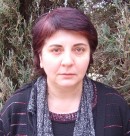
Plenary Lecture
Targeting Environmental Sustainability of Electrical Ecosystems through Exergy

Prof. Cornelia Aida Bulucea
University of Craiova
Faculty of Electrical Engineering
ROMANIA
E-mail: abulucea@gmail.com
Abstract: This presentation is targeting to enhance the way of thinking that a sustainable industrial metabolism, integrating technical and ecological aspects should be one of the greatest challenges of humanity within the present industrial world. Since it is globally accepted that human activities cannot be separated from the functioning of the entire system on Earth, learning from the Nature means to accept that the technical systems processes involving energy conversion and matter transformation need to be linked to environment engineering. Definitely, the future needs for Sustainable Development include a human moral change through education, and an industrial metabolism shift through responsible practical actions. Based on the strong conviction that Nature has so far generated life, Industrial Ecology seeks for a new approach of the industrial systems, viewed not in isolation from the Nature surroundings systems, but in concert with them. Within the framework of Industrial Ecology, an approach of technical systems, created by humans, and ecological systems, created by Nature, as parts of the same system, the industrial ecosystems, could provide a holistic view of the interactions and symbiosis interrelationships among human activities, industrial practices and ecological processes. Although Science not clarified and unified technical and ecological viewpoints, a set of conditions for the performance of sustainable electrical systems should be formulated. This presentation goes on to adopt a dualist view, incorporating technical and environmental dimensions, to describe exergy applicability to electrical ecosystems. Drawing up a description of the electric system as an industrial ecosystem, with its limits and components, defining the systems operation regimes and assessing the equilibrium points of the system within the two reference frames represent the appropriate steps of the industrial ecosystem metabolism analysis.
Brief Biography of the Speaker: Cornelia Aida Bulucea is currently an Associate Professor in Electrotechnics, Electrical Machines and Environment Electrical Equipments in the Faculty of Electrical Engineering, University of Craiova, Romania. She is graduate from the Faculty of Electrical Engineering Craiova and she received the Ph.D degree from Bucharest Polytechnic Institute. In Publishing House she is author of four books in electrical engineering area. Research work is focused on improved solutions for electrical networks on basis of new electric equipments and environmental impact of energy and electric transportation systems. She has extensive experience in both experimental and theoretical research work, certified by over 70 journal and conference research papers and 15 research projects from industry. She has held in the Association for Environment Protection OLTENIA and she is a regular invited keynote lecture for environmental engineering symposia organized by Chamber of Commerce and Industry OLTENIA. Due to WSEAS recognition as huge scientific Forum she participated over time in seventeen WSEAS International Conferences, presenting papers and chairing sessions. She was Plenary Lecturer in the 5th IASME/WSEAS International Conference on ENERGY&ENVIRONMENT (EE’10), held by the University of Cambridge, UK, February 23-25, 2010, in the 4th IASME/WSEAS International Conference on ENERGY&ENVIRONMENT (EE’09), ), held by the University of Cambridge, Cambridge UK, February 24-26, 2009 and in the 8th WSEAS International Conference on POWER SYSTEMS (PS’08), held by the University of Cantabria, Santander, Spain, September 23-25, 2008. She is very proud by her over 30 papers published in the WSEAS Conferences Books and in the WSEAS TRANSACTIONS ON ENVIRONMENT AND DEVELOPMENT, WSEAS TRANSACTIONS ON CIRCUITS AND SYSTEMS and WSEAS TRANSACTIONS ON ADVANCES IN ENGINEERING EDUCATION.